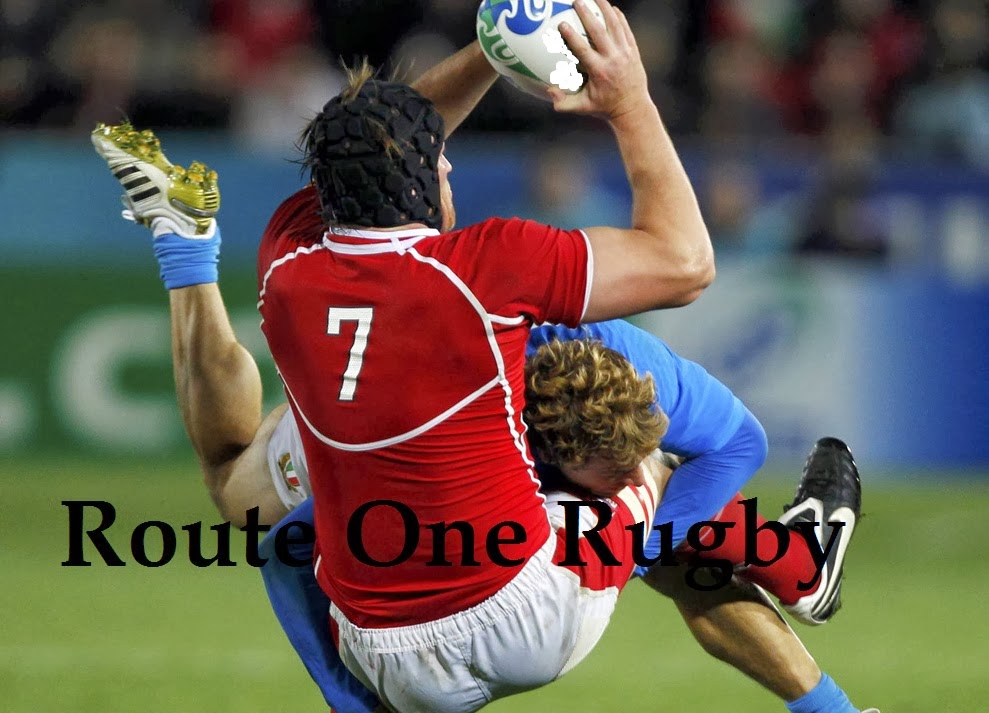With the 6 Nations quite literally around the corner, I wanted to start Route One by talking about each country and some of the possible talking points going into this tournament. I'll place the countries into different posts and I'll save my thoughts on the Round 1 matches for separate posts, and hopefully this doesn't take terribly long. They are arranged in absolutely random order:
Scotland: The last couple seasons have seen the Scotland side have had reasonable hope and potential to do well in the 6 Nations (with surprising -and misleading- Autumn results fuelling this), and beating more than Italy last year was a nice surprise, but to continue winning games will require 80 minute efforts each time out, and a couple players need to play absolutely out of their skin for this side to get a positive balance in the W column for this year's tournament. It really comes down to 10, as it has for the last decade (and beyond, but I won't pretend to know those sagas). Weir or Jackson or some effective combination of the two have to start doing something productive for this team to go places. Jackson has a real creative flair that can cause as much good as bad, but this is a team that does need to take risks in the right part of the field (ie not in the 22 please).
Making sure they can convert 80% or so of the points available off the kicking tee (they were 85% and 75% in 2013 and 2012) would go a long way to providing the team with a chance to win. Last season 64% of Scotland's points came from the team, which was about median for the tournament, and any loss in effectiveness at the tee would prove costly. The inverse of this is that Scotland will need to improve their discipline as they gave away 65 penalties in their 5 matches last year, 9 more than Ireland who were second, and 21 more than France who were the most disciplined side. I don't have the stats on how many of those let to point, or at least don't have the hours it would take to pull that information, but the outcomes are not what's important. When you are handing the opposition on average 13 opportunities a game to dictate field position and/or the score, you are going to be chasing the game far too often.
This is compounded by the issue that Scotland does not historically cross the white line that often. Since Italy joined the tournament in 2000, Scotland has scored the least tries at 81, good for just under 6 per tournament. The average during that time span is just over ten, though that average is brought down by the anaemic attacks from Scotland and Italy, and adjusting for that it comes up to a robust 12 per tournament, more than double Scotland's production. All of this is to say, things have been really poor in the past, and Scotland will need a lot of helpful breaks if they hope to have any success.They scored 7 tries last season but 4 were in the victory over Italy. 3 tries from 4 games is a poor return for any nation, though they will savour the 2 against England and one against France, though it must be said two of those scores were in the last 10 minutes when the outcomes of the games were much decided.
The upside is these tries were all scored by backs, and the last couple of years have seen a number of dangerous runners introduced into the backline, namely Stuart Hogg and Matt Scott. Both of these young men will play a pivotal role in the Scottish campaign. Scott has returned from the hand injury picked up against Japan, but his game time has been limited so far at Edinburgh, but back to full fitness he's Scotland's best centre and best hope to break the gainline. Provided they can get the ball to them, Lions Hogg and Sean Maitland will be dangerous runners out wide, but creating that space for the back three and speeders such as Maitland, Max Evans, Tommy Seymour or Douglie Fife has been a problem for Scottish coaches of past days.
Scotland finished last in the 2013 tournament in line-breaks, with 42, just under have the 81 that leaders France managed. It would be interesting to see how many of those came in the big game against Italy, because in many of Scotland's other games last year they didn't look capable of breaking the gainline with any consistency. That they also were the worst tackling team in the Championship last year, making only 81% of their hits, really exacerbates the whole situation. Can't stop the other team, can't break down their defence. I don't need to explain further why that will pose a problem for continued success.
The forward pack can be a source of strength, though front-row depth is lacking, it must be admitted. The second-row is starting to see some real talent coming through, with both Greys, Tom Swinson and Grant Gilchrist joining Jim Hamilton to give Scott Johnson plenty of options. The back-row is borderline ridiculous in how many quality options are genuinely at Johnson's disposal, and those with talent outside of this 6 Nations squad. This should prove proper impetus for each man in possession of the 6-8 jerseys because their spot in the team is by no means assured. It will be particularly interesting to see how Kelly Brown is used; like Chris Robshaw, he is not Scotland's best choice at 7, but he is a great player and their captain, and given better options at 6 and 8, you need to find a spot he can play adequately. Which is why he'll likely continue to get the not over Fusaro, barring injuries.

No comments:
Post a Comment